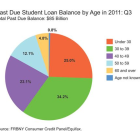
Is Bully Movie Being Bullied with “R” Rating?
|
“Bully,” a documentary movie that follows five kids who are brutalized by classmates over the course of the year, is set to hit theatres by the end of the month, but not as many teens may be seeing the movie as the producers had hoped. When the Motion Picture Association of America (MPAA) stamped the movie with an “R” rating back in February, a number of people raised concerns that it may not reach many in the demographic the film aimed to impact -- those under 17 and still dealing with aspects of bullying in their daily lives. What do you think of when you hear about bullying? Hitting, slapping, harassment, name-calling and profanity are but a few of the adjectives that come to mind. All are present in the movie -- and why wouldn’t they be?








